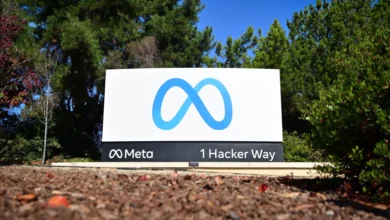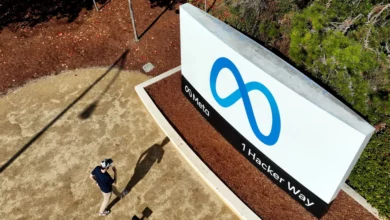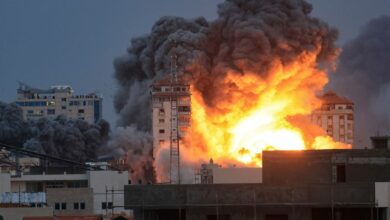Protests organized by teachers and military-production workers, strikes led by university professors and a march by Coptic Christians on the state television building, all planned for today, make headlines in Egypt's Sunday papers. Egypt's military junta, the Supreme Council of the Armed Forces (SCAF), whose policies are being closely scrutinized and criticized by both Egyptian and international analysts, also makes top news.
In the independent Al-Shorouk, a front page headline reads "Independent Teachers Syndicate threatens to boycott mid-term exams." The liberal opposition Al-Wafd runs a headline reading "Teachers threaten to obstruct exams, military-production workers demand full-time contracts … Egyptians abroad demand right to vote … Special-needs protesters demand employment." The article mentions that hundreds of teachers protested outside the cabinet building on Saturday, calling for the resignation of Education Minister Ahmed Gamal Eddin Moussa.
Following up on teachers' nationwide strikes last month, this protest organized by the Independent Teachers Syndicate also demanded the payment of incremental bonuses and a minimum wage of LE3000 for full-time teachers. According to Al-Wafd, the teachers are threatening to boycott and obstruct mid-term exams and resume striking on 31 December if their demands are not met. State-owned Al-Ahram says, "Resumption of teachers' protests outside cabinet."
Protesting at the same time and location were dozens of workers and employees of the Military Production Ministry. They demanded full-time contracts for full-time workers – having been employed by the ministry for between five to 15 years, they are still classified as temporary workers.
Meanwhile over a dozen special-needs activists again protested outside the cabinet demanding job opportunities. Nearby, a group of Egyptians living abroad protested outside the parliament building, demanding the right to vote in upcoming parliamentary and presidential elections from abroad. They suggested voting online to bypass logistical difficulties.
Independent Al-Tahrir covers the strikes of university professors in Alexandria, Cairo and Mansoura with the headline "Professors demand the dismissal of National Democratic Party (NDP) figures from university boards." According to the article, professors at the universities of Alexandria, Ain Shams and Mansoura are striking to demand the removal of deans and senior board members who were members of Mubarak's now-dissolved NDP. The strikers are also demanding that authorities issue a "political isolation law" to ensure that NDP members are prevented from nominating themselves in university (and all other) elections for a period of two years.
In Al-Wafd, another protest is covered with the headline: "Within hours … Coptic protest march to Maspero." It reports that Coptic protesters are planning to march from the district of Shubra to the state television building, known as Maspero, in central Cairo. They are protesting against the army dispersing Christian protesters from Maspero on Tuesday night by force, and demanding investigations into attacks on churches earlier this year.
They are also demanding the reconstruction of the Saint George's church in the village of Marinab, near the town of Edfu, at the state's expense. It was partially destroyed on 30 September. Furthermore, they are calling for the resignation of the governor of Aswan, for his alleged negligence in dealing with the issue.
Other top news includes critiques of the SCAF, its policies and its use of military tribunals.
Al-Shorouk runs a headline reading "International financial institutions: Delaying transition to democracy will delay Egypt's economic recovery." This article says that the Fitch Institute of Financial Consultants has expressed concern regarding the slow pace of Egypt's democratic transition under the SCAF's guidance. According to the SCAF's recently proposed timetable, the transition to civilian rule may be postponed until 2013 – following parliamentary and presidential elections and the drafting of a new constitution.
The Fitch Institute concludes that the SCAF's extension of the interim period – from six months to over two years – may add to a climate of apprehension and uncertainty, which could negatively impact the tourism industry, foreign direct investment and international financial assistance.
Representatives of the International Monetary Fund (IMF) are reportedly engaged in discussions with the SCAF regarding the political situation in Egypt, along with the revolution's prospects and its economic repercussions. Al-Shorouk says that an IMF delegation is expected to visit Egypt over the next few weeks and meet with the SCAF regarding the transition to democracy and financial programs.
In other SCAF-related news, Al-Tahrir runs a front page headline reading, "The charge: Defaming Egypt's army." A military tribunal is looking into charges leveled against youth activists Asmaa Mahfouz, Noor Ayman Nour and Ahmed Azzam. The three stand accused of cursing and defaming the SCAF and the Egyptian military while protesting outside a military court in Nasr City on Tuesday during an appeal hearing for imprisoned blogger Maikel Nabil.
Al-Tahrir quotes an army spokesman as saying "the military judiciary supports freedom of expression, but cannot condone slander." Investigations and hearings for the three activists are expected to happen soon.
The chief headline in the independent Sawt al-Umma newspaper reads, "The secret society which rules Egypt." This op-ed feature by Editor-in-Chief Abdel Halim Qandil attempts to uncover the mysterious political stances of the 20 generals who make up the SCAF.
Qandil implies that a number of SCAF members are seeking "to bury the revolution" and are allowing "remnants of the Mubarak regime" to "re-create the old regime." However, he also mentions that "some of these generals are sympathetic toward the revolution." The SCAF's policy-making mechanisms are a mysterious process, and its members' true loyalties, leanings and intentions are kept in the dark, according to the writer.
Egypt's papers:
Al-Ahram: Daily, state-run, largest distribution in Egypt
Al-Akhbar: Daily, state-run, second to Al-Ahram in institutional size
Al-Gomhurriya: Daily, state-run
Rose al-Youssef: Daily, state-run
Al-Dostour: Daily, privately owned
Al-Shorouk: Daily, privately owned
Al-Wafd: Daily, published by the liberal Wafd Party
Youm7: Daily, privately owned
Al-Tahrir: Daily, privately owned
Sawt al-Umma: Weekly, privately owned
Al-Arabi: Weekly, published by the Arab Nasserist party




